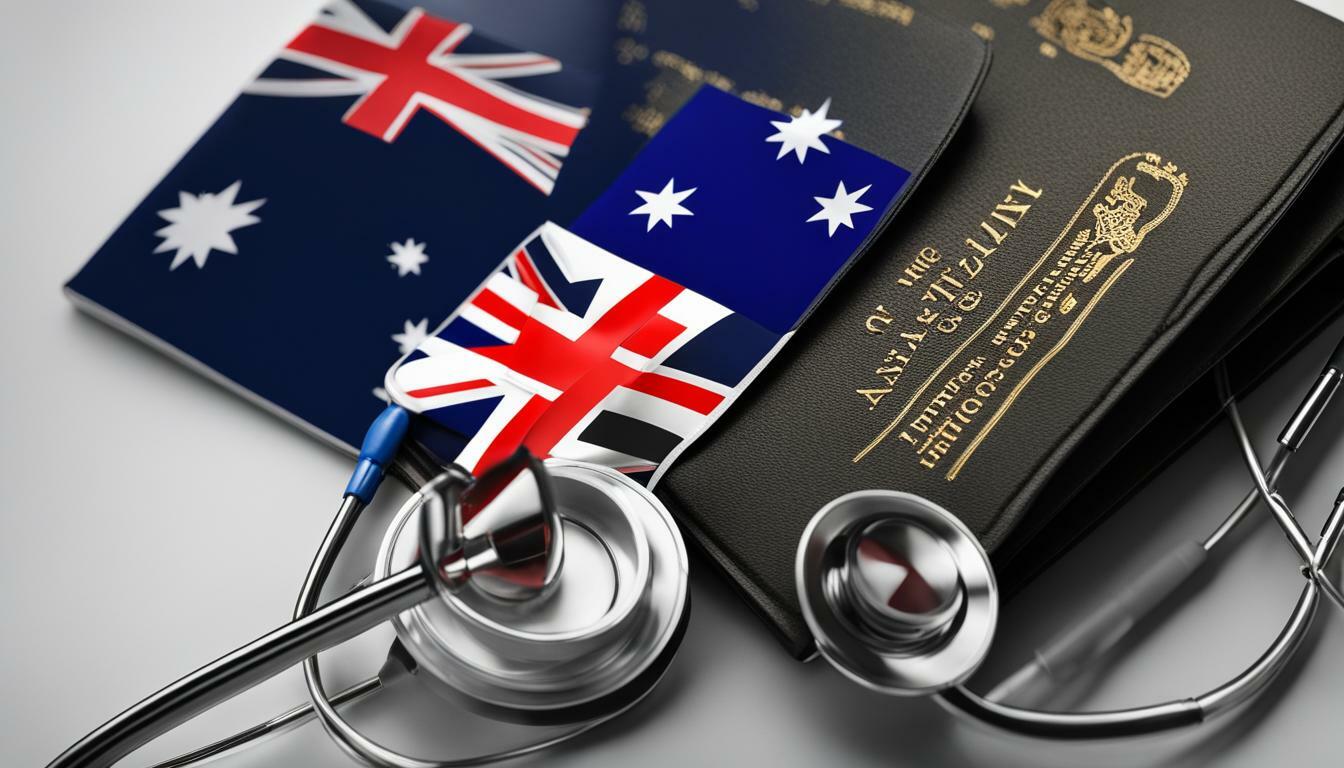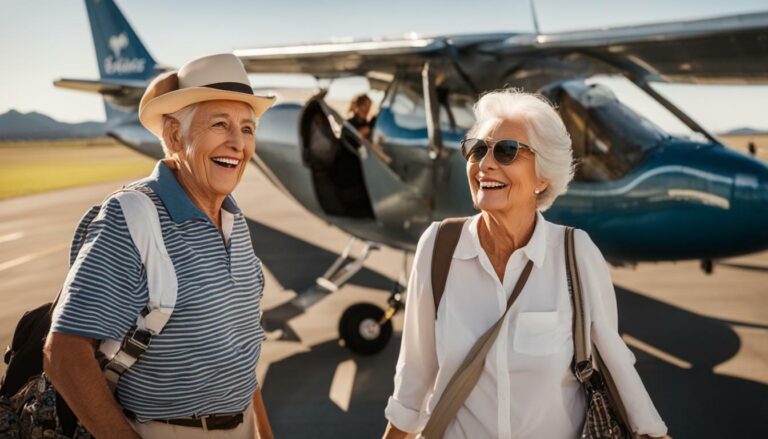Understanding What Medical Checks Are Required for an Australian Visa
Before applying for an Australian visa, it is crucial to understand and fulfill the necessary medical checks and health requirements. Most types of visas for Australia require applicants to meet specific health criteria to ensure the safety and well-being of both the individual and the Australian community.
- Medical exams and tests, including a full medical examination and chest x-ray, are commonly required for Australian visa applications.
- All individuals included in the visa application, as well as any dependents aged 11 or older, must undergo these medical checks.
- Certain medical conditions, such as tuberculosis, can lead to a visa refusal, highlighting the importance of addressing any health issues before applying.
- Australia has designated panel doctors who are responsible for conducting the required medical examinations.
- Applicants have the option to have a chaperone present during the examination to ensure their comfort and peace of mind.
Understanding the health requirements imposed by the Australian immigration authorities is crucial for a successful visa application. These requirements aim to minimize health and safety risks, control public expenditure, and maintain access to health services for both residents and migrants.
It is important to complete the health examination before lodging your visa application. Failure to do so may result in delays or even rejection of your application. Medical reports usually take 7-14 days to be uploaded to your Immiaccount, so it’s advisable to plan accordingly.
It’s essential to note that medical tests for visa purposes are typically not covered by insurance, and the cost may vary depending on the location. Therefore, it’s important to consider this aspect when preparing your visa application.
Some medical conditions, such as intellectual or functional impairment or high treatment costs, may lead to a refusal of permanent residency (PR). However, in certain circumstances, applicants can apply for a health waiver.
Key Takeaways:
- Most Australian visas require applicants to undergo medical checks to meet the health requirements.
- A full medical examination and chest x-ray are commonly required tests.
- All individuals included in the visa application and dependents aged 11 or older must undergo these medical checks.
- Certain medical conditions, including tuberculosis, can lead to a visa refusal.
- Australia has designated panel doctors to conduct the required medical examinations.
Types of Australian Visas Requiring Medical Checks
The medical checks for an Australian visa vary depending on the type of visa being applied for. It is important to identify the specific visa category in order to determine the necessary medical assessments. The Australian immigration authorities have established health requirements to ensure public health and safety, as well as to control public expenditure and maintain access to health services.
There are several types of Australian visas that require medical checks. These include, but are not limited to, skilled visas, student visas, partner visas, and parent visas. Each visa category has its own set of health requirements, which may include a full medical examination, a chest x-ray, and other specific tests depending on the individual circumstances.
Applicants and their dependents aged 11 or older who are included in the visa application must undergo the required medical checks. It is essential to comply with these health requirements to increase the chances of a successful visa application. Failure to meet the medical requirements or having certain medical conditions, such as tuberculosis, can result in a visa refusal.
Types of Australian Visas Requiring Medical Checks:
| Visa Category | Required Medical Checks |
|---|---|
| Skilled Visas | Full medical examination, chest x-ray, and other tests as required |
| Student Visas | Full medical examination, chest x-ray, and other tests as required |
| Partner Visas | Full medical examination, chest x-ray, and other tests as required |
| Parent Visas | Full medical examination, chest x-ray, and other tests as required |
It is important to note that these requirements may change or be updated by the Australian immigration authorities. Therefore, applicants should always refer to the official guidelines and consult with a registered migration agent or panel doctor for the most up-to-date information regarding the specific medical checks required for their visa application.
Understanding and meeting the health requirements for an Australian visa is crucial. By ensuring compliance with the necessary medical checks, applicants can increase their chances of a successful visa application and move forward with their plans to study, work, or live in Australia.
Health Requirements for Australian Visas
The Australian immigration authorities have established health requirements that all visa applicants must meet to ensure the safety and well-being of individuals within the country. These health requirements are in place to minimize health and safety risks, control public expenditure, and maintain access to health services. Understanding and meeting these requirements is crucial for a successful visa application.
Most types of visas for Australia require applicants to undergo a full medical examination and a chest x-ray. The full medical examination assesses various medical conditions to determine if an applicant poses a health risk to the Australian community. It is essential for all individuals included in the visa application, as well as any dependents aged 11 or older, to undergo these medical checks.
Certain medical conditions, such as tuberculosis, can result in a visa refusal. It is important to note that Australia has designated panel doctors who are authorized to conduct the medical examinations. Applicants also have the option to have a chaperone present during the examination, should they wish to do so. If a doctor’s letter is required, it can be obtained from any general practitioner.
The health examination process should be completed before lodging a visa application to avoid delays or rejection. It is also important to note that medical reports typically take 7-14 days to be uploaded to the applicant’s Immiaccount. The cost of the medical tests varies depending on the location, and it is usually not covered by insurance. Therefore, it is essential for applicants to be aware of the associated costs.
| Key Points | |
|---|---|
| Understanding and meeting the health requirements is crucial for a successful Australian visa application | |
| A full medical examination and chest x-ray are typically required | |
| All individuals in the visa application, including dependents aged 11 or older, must undergo the medical checks | |
| Certain medical conditions, such as tuberculosis, can result in visa refusal | |
| Australia has designated panel doctors for conducting the medical examinations | |
| Chaperones can be present during the examination upon request | |
| Doctor’s letters can be obtained from any general practitioner if required | |
| The health examination process should be completed before lodging the visa application | |
| The cost of the medical tests varies depending on the location and is not covered by insurance |
Summary:
Understanding and meeting the Australian immigration health requirements is vital for a successful visa application. These requirements include a full medical examination and chest x-ray for most visa types. All individuals in the visa application, including dependents aged 11 or older, must undergo the medical checks. Certain medical conditions, like tuberculosis, can lead to visa refusal. Panel doctors designated by Australia conduct the medical examinations, and applicants can have a chaperone present if desired. Doctor’s letters can be obtained from any general practitioner. It is crucial to complete the health examination before lodging the visa application to avoid delays or rejection. Medical reports typically take 7-14 days to be uploaded, and the cost varies depending on the location. Understanding and meeting the health requirements is essential for a successful Australian visa application.
Full Medical Examination for Australian Visa
A full medical examination is a mandatory component of the medical checks for an Australian visa. This examination is conducted by panel doctors designated by Australia and is aimed at ensuring that applicants meet the health requirements set by the Australian immigration authorities. It is important for applicants to understand the process and what is involved in the examination.
The full medical examination consists of various assessments and tests to assess an individual’s overall health and identify any medical conditions that may pose a risk to public health or result in a significant cost burden on the Australian healthcare system. The examination includes a thorough physical examination, review of medical history, and may involve additional tests such as blood tests, urine tests, and chest x-rays.
Table: Components of a Full Medical Examination for an Australian Visa
| Component | Description |
|---|---|
| Physical examination | A comprehensive assessment of the applicant’s physical health, including measuring height, weight, blood pressure, and examining various body systems. |
| Review of medical history | A detailed evaluation of the applicant’s past medical conditions, surgeries, and treatments, as well as any current medications. |
| Medical tests | Additional tests may be required based on individual circumstances, such as blood tests, urine tests, and chest x-rays. |
It is important for applicants to note that the cost of the full medical examination is not typically covered by insurance and the price may vary depending on the location. The examination is carried out to ensure the health and safety of both the applicant and the Australian community. Failure to complete the health examination before lodging a visa application can result in delays or even rejection of the application.
Applicants should consult with panel doctors, who are well-versed in the medical requirements for Australian visas, to ensure they understand the process and what is expected of them. By meeting the health requirements and completing the necessary medical checks, applicants can increase their chances of a successful visa application and realize their dreams of visiting or residing in Australia.
Chest X-ray as part of Australian Visa Medical Tests
As part of the medical tests for an Australian visa, applicants are required to undergo a chest x-ray to screen for certain medical conditions. This x-ray is an important component of the visa medical examination and helps detect any signs of tuberculosis or other respiratory conditions.
The chest x-ray is a non-invasive procedure that involves taking an image of the applicant’s chest area. It helps assess the health of the lungs and can identify any abnormalities or infections. By screening for tuberculosis, Australian immigration authorities aim to protect public health and minimize the risk of the disease spreading within the country.
During the chest x-ray, the applicant will be positioned in front of an x-ray machine and asked to hold their breath for a few seconds while the image is captured. The procedure is quick, painless, and typically does not require any special preparation or follow-up.
Table: Countries with High Incidence of Tuberculosis
| Country | Incidence Rate (per 100,000 people) |
|---|---|
| India | 193 |
| China | 59 |
| Philippines | 28 |
| Vietnam | 98 |
It’s important to note that the chest x-ray requirement is specific to certain visa types and depends on the applicant’s country of residence. Additionally, applicants who have previously been treated for tuberculosis may be required to provide additional documentation or undergo further medical assessments.
By including the chest x-ray as part of the medical tests, the Australian immigration authorities aim to ensure that only individuals with good health and low risk of transmitting contagious diseases are granted visas. This helps protect the health and safety of the Australian population and maintain access to healthcare services for both residents and migrants.
Including Dependents in Visa Medical Checks
In addition to the primary applicant, all dependents aged 11 or older included in the visa application must also undergo the necessary medical checks. This requirement ensures that the health and safety of all individuals entering Australia are upheld. By including dependents in the medical checks, the Australian immigration authorities can assess their health status and identify any potential risks or conditions that may affect their ability to live in or travel to Australia.
The medical checks for dependents are similar to those for the primary applicant and typically involve a full medical examination and a chest x-ray. These tests are essential for detecting any infectious diseases or medical conditions that could pose a threat to public health or create a significant burden on the Australian healthcare system.
| Dependent | Age | Medical Assessment |
|---|---|---|
| Child | Under 11 | No medical checks required |
| 11 and older | Full medical examination and chest x-ray | |
| Spouse | Under 11 | No medical checks required |
| 11 and older | Full medical examination and chest x-ray |
It is important to note that the costs associated with the medical checks for dependents are typically not covered by insurance. The exact cost may vary depending on the location and the medical service provider chosen. Applicants should factor in these costs when planning their visa application and budget accordingly.
“Including dependents in the visa medical checks ensures that the health and well-being of all individuals entering Australia are protected. By conducting thorough medical assessments, the Australian immigration authorities can uphold their commitment to public health and safety.”
– Dr. Emily Peterson, Panel Doctor
Summary
In conclusion, all dependents aged 11 or older included in an Australian visa application must undergo the necessary medical checks. These checks, including a full medical examination and a chest x-ray, are essential for ensuring the health and safety of all individuals entering Australia. The costs for these medical checks are not covered by insurance and may vary depending on the location. By meeting the health requirements, applicants can increase their chances of a successful visa application and ensure a smooth entry into Australia.
Visa Refusal due to Certain Medical Conditions
It is important to be aware that certain medical conditions can lead to a visa refusal during the medical assessment process. The Australian immigration authorities have specific health requirements in place to ensure the safety and well-being of both visa applicants and the Australian community as a whole. These requirements are designed to minimize health risks, control public expenditure, and maintain access to health services.
One of the primary reasons for visa refusal is the presence of certain medical conditions, such as tuberculosis, which poses a significant health risk. The Australian immigration authorities take these conditions seriously to protect the health of residents and prevent the spread of infectious diseases. Applicants with such conditions may be deemed ineligible for a visa as they could potentially burden the Australian healthcare system or pose a risk to public health.
It’s important for applicants to understand that the visa medical assessment process is rigorous, and the presence of certain medical conditions can lead to a visa refusal. However, it’s worth noting that each case is assessed individually, and applicants may have the opportunity to provide further information or apply for a health waiver in certain circumstances. Consulting with a registered migration agent or seeking professional advice can help applicants navigate the medical assessment process and address any concerns about their medical conditions.
| Key Points: |
|---|
| ● Certain medical conditions can result in a visa refusal during the medical assessment process. |
| ● Health requirements are in place to minimize health risks and control public expenditure. |
| ● The presence of conditions like tuberculosis can deem applicants ineligible for a visa. |
| ● Each case is assessed individually, and applicants may have the opportunity to provide further information or apply for a health waiver. |
Quote:
“The visa medical assessment process is stringent to protect the health of residents and prevent the spread of infectious diseases. Applicants need to be mindful of any medical conditions that might pose a risk to public health.” – Registered Migration Agent
Panel Doctors and Chaperones for Medical Examinations
The Australian government has designated panel doctors who are authorized to conduct the required medical examinations for visa applicants. These panel doctors are experienced professionals who are knowledgeable about the specific health requirements imposed by the Australian immigration authorities. They ensure that all necessary medical tests are conducted accurately and efficiently.
When attending the medical examination, applicants have the option to have a chaperone present. This can help provide a sense of comfort and support during the examination process. The chaperone can be a family member, friend, or even a registered nurse.
It is important to note that panel doctors and chaperones are there to ensure that the medical examination is carried out in adherence to the guidelines and protocols set by the Australian government. Their aim is to maintain the integrity and accuracy of the medical assessment, while also prioritizing the well-being and privacy of the visa applicants.
What to Expect During the Medical Examination
During the medical examination, the panel doctor will assess various aspects of the applicant’s health, including medical history, physical examination, and relevant diagnostic tests. This comprehensive evaluation helps determine if the applicant meets the health requirements set by the Australian immigration authorities.
The medical examination may include:
- Reviewing the applicant’s medical history, including any pre-existing conditions or medications
- Physical examination, including height, weight, and basic health assessments
- Reviewing immunization records
- Diagnostic tests such as blood tests, urine tests, and chest x-rays as required
Based on the findings of the medical examination, the panel doctor will provide a detailed medical report to the Australian immigration authorities. This report will typically be uploaded to the applicant’s Immiaccount within 7-14 days, allowing the visa application process to proceed.
| Medical Examination Process | Expected Timeline | Cost |
|---|---|---|
| Book appointment with designated panel doctor | Depends on doctor’s availability | Varies depending on location |
| Undergo medical examination and tests | 1-2 hours | |
| Wait for medical report to be uploaded to Immiaccount | 7-14 days |
Please note that the cost of the medical examination and tests may vary depending on the location and the specific requirements of the visa application. It is recommended to contact the designated panel doctors for accurate information regarding the cost and availability of the medical examination process.
By understanding the role of panel doctors, the option to have a chaperone present, and the overall process of the medical examination, visa applicants can better prepare for the health requirements of an Australian visa application. Adhering to these requirements increases the chances of a smooth and successful visa application process.
Obtaining Doctor’s Letter for Australian Visa
If a doctor’s letter is necessary for an Australian visa application, it can be obtained from any general practitioner. This letter serves as a supporting document that provides important medical information about the applicant. It should include details about the applicant’s overall health, any pre-existing medical conditions, and any necessary treatments or medications.
When obtaining the doctor’s letter, it is essential to communicate the specific requirements outlined by the Australian immigration authorities. This ensures that the letter includes all the necessary information and meets the visa application requirements. It is recommended to provide the doctor with a copy of the visa application checklist, which outlines the medical requirements, to ensure accuracy and completeness.
Additionally, it is important to schedule the appointment with the general practitioner well in advance to allow sufficient time for the completion of the doctor’s letter. Depending on the doctor’s availability and workload, it may take a few days or longer to receive the letter. It is advisable to plan accordingly and factor in any potential delays.
| Key Points | Information |
|---|---|
| Letter Content | The doctor’s letter should include details about the applicant’s overall health, any pre-existing medical conditions, and any necessary treatments or medications. |
| Requirement Communication | Ensure to communicate the specific requirements outlined by the Australian immigration authorities to the general practitioner. |
| Appointment Scheduling | Schedule the appointment with the general practitioner well in advance to allow sufficient time for the completion of the doctor’s letter. |
It is recommended to provide the doctor with a copy of the visa application checklist to ensure accuracy and completeness.
Remember that the doctor’s letter is just one component of the medical checks required for an Australian visa. It is essential to follow all the necessary steps and complete the medical examinations and tests as outlined by the Australian immigration authorities. By understanding and meeting the health requirements, applicants increase their chances of a successful visa application.
Importance of Completing Health Examination before Lodging Visa Application
It is crucial to complete the health examination required for an Australian visa before lodging the visa application to ensure a smooth application process. The Australian immigration authorities have implemented health requirements to minimize health and safety risks, control public expenditure, and maintain access to health services. By understanding and meeting these requirements, applicants can increase their chances of a successful visa application.
Most types of visas for Australia require applicants to undergo a full medical examination, including a chest x-ray. This examination assesses various medical conditions and is necessary for determining if an individual meets the health requirements for the visa. It is important to note that all individuals listed in the visa application, as well as any dependents aged 11 or older, must undergo these medical checks.
The designated panel doctors in Australia are responsible for conducting the visa medical examinations. These doctors are experienced in assessing and determining if an applicant meets the health requirements. If an applicant desires, they can also have a chaperone present during the examination to ensure their comfort and support.
To complete the health examination, applicants may need to obtain a doctor’s letter. This letter can be obtained from any general practitioner if required. It is important to follow the instructions provided by the immigration authorities regarding the medical examinations and any additional documentation needed to support the visa application.
| Key Points | Summary |
|---|---|
| Complete health examination | Crucial for Australian visa application |
| Full medical examination and chest x-ray | Required for most visa categories |
| Dependents aged 11 or older | Must also undergo medical checks |
| Panel doctors and chaperones | Designated for conducting examinations |
| Doctor’s letter | Can be obtained from any GP if required |
Completing the health examination before lodging the visa application not only ensures compliance with the health requirements but also prevents delays or rejection of the application. The medical reports typically take 7-14 days to be uploaded to the applicant’s Immiaccount, so it is essential to plan ahead and allow sufficient time for these reports. It is also important to note that the cost of the visa medical examinations may vary depending on the location, and it is typically not covered by insurance.
Overall, understanding and meeting the health requirements for an Australian visa is essential for a successful application. By completing the required medical checks and providing the necessary documentation, applicants can demonstrate their commitment to maintaining their health and safety as well as the health and safety of the Australian community.
Processing Time and Cost for Visa Medical Reports
The processing time for visa medical reports can take anywhere from 7 to 14 days, and the cost may vary depending on the location. It is important for visa applicants to be aware of these factors to properly plan and budget for their medical assessments.
Once the medical examinations have been completed, the results are typically uploaded to the applicant’s Immiaccount within the specified timeframe. During this period, applicants are advised to regularly check their account for any updates or notifications regarding their medical reports.
It is worth noting that the cost of visa medical assessments can vary depending on the location where the examinations are conducted. Applicants should contact the panel doctors or medical facilities designated by Australia to inquire about the specific costs involved.
| Processing Time | Cost |
|---|---|
| 7-14 days | Varies by location |
Furthermore, it is important for applicants to be aware that these medical assessments are typically not covered by insurance. Therefore, the cost of the examinations and any associated tests or investigations will need to be borne by the applicant.
Overall, understanding the processing time and cost for visa medical reports is crucial for individuals applying for an Australian visa. By being aware of these factors, applicants can properly plan and allocate resources to ensure a smooth and efficient application process.
Conclusion
Understanding and meeting the health requirements for an Australian visa is crucial for ensuring a successful application and entry into the country. Most types of visas for Australia require applicants to undergo a full medical examination and chest x-ray to meet the health requirements. It is important to note that all individuals included in the visa application, as well as any dependents aged 11 or older, must also undergo these medical checks.
The Australian immigration authorities have designated panel doctors who are responsible for conducting the medical examinations. Applicants have the option to have a chaperone present during the examination if desired. If a doctor’s letter is required, it can be obtained from any general practitioner.
The health requirements for an Australian visa are in place to minimize health and safety risks, control public expenditure, and maintain access to health services. The health examination process should be completed before lodging the visa application to avoid delays or rejection. Medical reports typically take 7-14 days to be uploaded to the applicant’s Immiaccount.
It is important to note that the cost of the visa medical tests varies depending on the location, and insurance usually does not cover these expenses. Certain medical conditions, such as tuberculosis, can result in a visa refusal. However, applicants can apply for a health waiver in certain circumstances, such as intellectual or functional impairment or high treatment costs.
Overall, understanding and meeting the health requirements for an Australian visa is essential for a successful application. By ensuring that all necessary medical examinations and tests are completed, applicants can increase their chances of obtaining an Australian visa and fulfilling their dreams of living or visiting Australia.
FAQ
Q: What medical checks are required for an Australian visa?
A: Most types of visas for Australia require applicants to meet health requirements, including a full medical examination and chest x-ray. All individuals included in the application, as well as any dependents aged 11 or older, must undergo these medical checks.
Q: Can certain medical conditions result in a visa refusal?
A: Yes, certain medical conditions, such as tuberculosis, can result in a visa refusal. It is important to meet the health requirements imposed by Australian immigration authorities.
Q: Who conducts the medical examinations for Australian visas?
A: Australia has designated panel doctors who are responsible for conducting the medical examinations required for Australian visas.
Q: Can a chaperone be present during the medical examination?
A: Yes, applicants have the option to have a chaperone present during the medical examination if desired.
Q: Where can I obtain a doctor’s letter for an Australian visa?
A: If a doctor’s letter is required, it can be obtained from any general practitioner.
Q: When should the health examination be completed?
A: The health examination should be completed before lodging a visa application to avoid any delays or rejection of the application.
Q: How long does it take for the medical reports to be uploaded?
A: Medical reports typically take 7-14 days to be uploaded to the applicant’s Immiaccount.
Q: Does insurance cover the cost of visa medical tests?
A: No, insurance typically does not cover the cost of visa medical tests. The cost varies depending on the location.
Q: Can certain medical conditions lead to visa rejection?
A: Yes, medical conditions such as intellectual or functional impairment or high treatment costs can lead to visa rejection. However, applicants may be able to apply for a health waiver in certain circumstances.
Q: Why are health requirements in place for Australian visas?
A: Health requirements are in place to minimize health and safety risks, control public expenditure, and maintain access to health services.
Source Links
- https://srilanka.embassy.gov.au/clmb/120120HEALTHREQUIREMENTSANDMEDICALEXAMINATIONS.html
- https://www.australia-migration.info/medical-and-health-requirements/
- https://www.am22tech.com/au/australia-visa-skilled-pr-medical-test/






